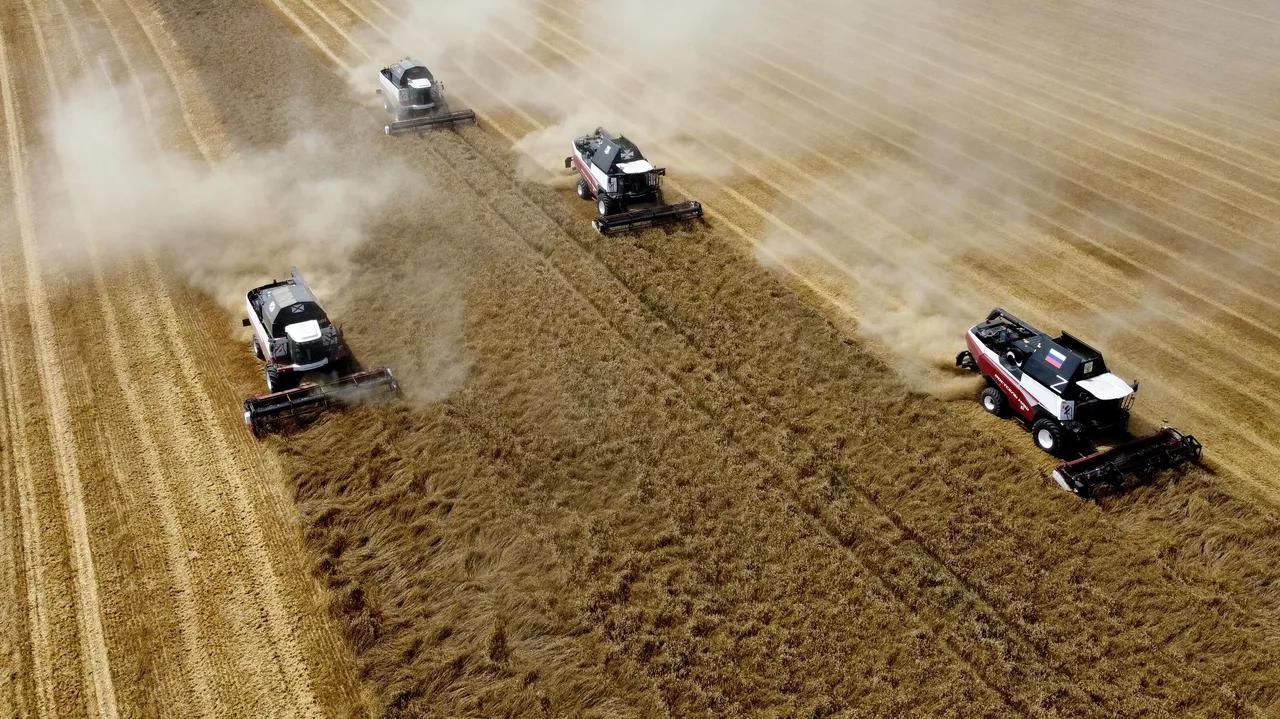Africa-Press – Botswana. Russian President Vladimir Putin has repeatedly emphasized that, for almost a year, over 70% of the supplies exported from Ukraine under the grain deal ended up in high- and upper-middle-income countries, while developing nations received less than 3% of the supplies.
Western sanctions imposed on Moscow, which is one of the world’s largest producers of fertilizers and grains, do not really affect Russia, but have a lot of impact on Africa, Malick Niang, communications secretary of the West African Fertilizer Association (WAFA), said in an interview.
“Yes, I already think that these sanctions, which were addressed to Russia, in reality are addressed to Africa,” he said on the sidelines of the Russia-Africa Summit in St. Petersburg.
Referring to the Black Sea Grain Initiative signed last year between Russia and Ukraine with the mediation of Turkey and the UN, Niang recalled that the agreement aimed to “liberate” grain in a conflict zone and improve food security in countries in need. However, he stressed that the supplies didn’t reach those countries, but mostly ended up in Europe.
“Barely 3% of everything that has been released has reached Africa, although we are a continent where we have almost two billion people. So, in my opinion, these sanctions have indeed affected us a lot,” he emphasized.
He noted that while the grain deal was in effect, not a single ship carrying Russian fertilizer left the Russian ports. Even the fertilizers that Moscow was willing to provide for free were blocked at Western ports, he said. “We don’t understand,” Niang said, wondering why the West continues to “block products meant for Africans.”
“And that’s why we came here [to Russia] to understand firsthand what’s going on. […] Russia’s wish is to have a win-win partnership with Africa, and we are also ready for that.”
According to Niang, the international community must “find a peaceful solution to this problem,” with the participation of the UN and other world bodies. He stated that it is necessary to “cooperate better, in a more direct way,” while moving towards “a multipolar development of all global relations.
He also endorsed the idea of using national currencies in bilateral settlements, noting that “today there is no harm in trading with a partner in any currency, be it ruble or yuan.”On July 18, the Black Sea Grain Initiative, commonly known as the grain deal, which provided a humanitarian corridor for Ukrainian grain exports, expired as Russia did not renew its participation. Moscow, which has repeatedly extended the July 2022 deal, recalled that the part of the agreement concerning Russia – the removal of obstacles to its agricultural exports – had not been fulfilled.
According to the Russian president, several barriers have been mounted to Russia’s attempts to provide free of charge mineral fertilizers to the world’s poorest countries.
Moscow also repeatedly emphasized that, although the deal was intended to send food to the needy countries, most of the grain from Ukraine went to the developed countries of the West.
SPUTNIK
For More News And Analysis About Botswana Follow Africa-Press






